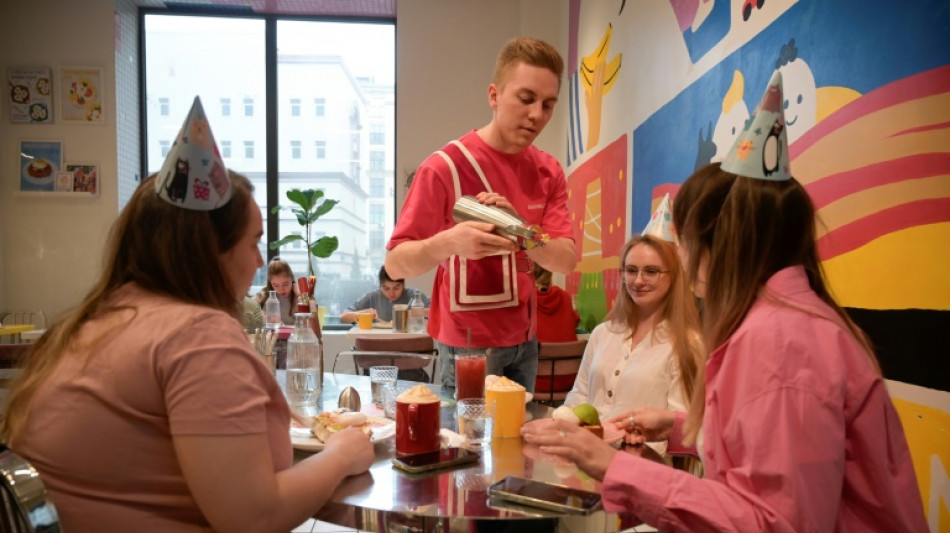
-
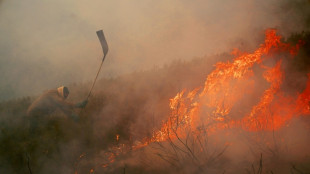 Wildfires pile pressure on Spanish PM
Wildfires pile pressure on Spanish PM
-
Stock markets mixed ahead of Nvidia earnings

-
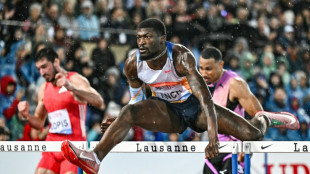 Football's loss as hurdles sensation Tinch eyes Tokyo worlds
Football's loss as hurdles sensation Tinch eyes Tokyo worlds
-
Pakistan blows up dam embankment as it braces for flood surge
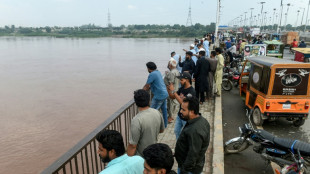
-
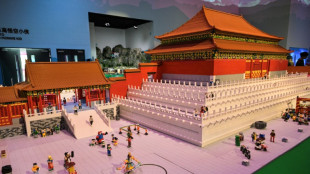 Lego posts record sales, sees market share growing further: CEO
Lego posts record sales, sees market share growing further: CEO
-
France overlook Ekitike for World Cup qualifiers, Akliouche called up
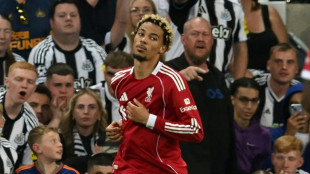
-
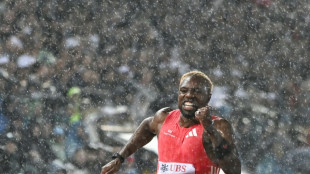 Rain no obstacle, Lyles insists ahead of Diamond League finals
Rain no obstacle, Lyles insists ahead of Diamond League finals
-
Almodovar urges Spain cut ties with Israel over Gaza
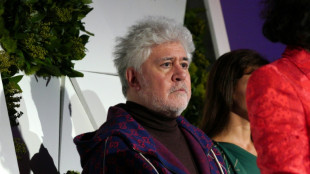
-
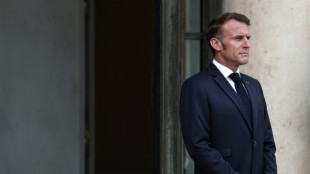 Macron gives 'full support' to embattled PM as crisis looms in France
Macron gives 'full support' to embattled PM as crisis looms in France
-
Stock markets diverge awaiting Nvidia earnings

-
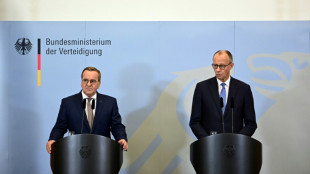 German cabinet agrees steps to boost army recruitment
German cabinet agrees steps to boost army recruitment
-
Denmark summons US diplomat over Greenland 'interference'
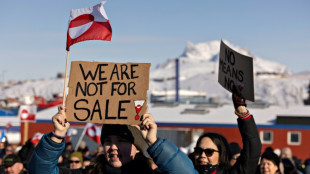
-
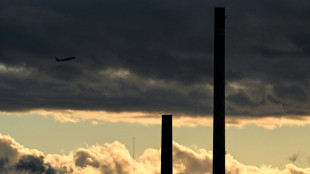 German factory outfitters warn of 'crisis' from US tariffs
German factory outfitters warn of 'crisis' from US tariffs
-
Israel ups pressure on Gaza City as Trump eyes post-war plan
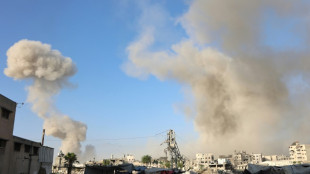
-
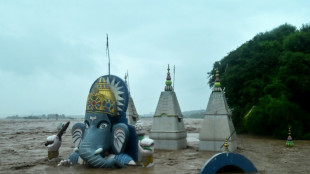 Floods, landslides kill at least 30 in India's Jammu region
Floods, landslides kill at least 30 in India's Jammu region
-
Former player comes out as bisexual in Australian Rules first

-
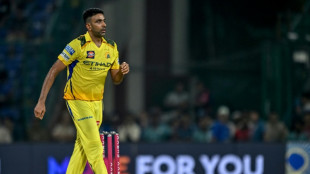 Indian spin great Ashwin calls time on IPL career
Indian spin great Ashwin calls time on IPL career
-
India faces world football ban for second time in three years
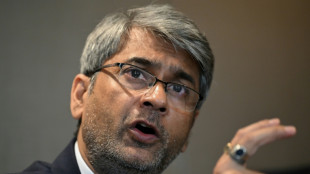
-
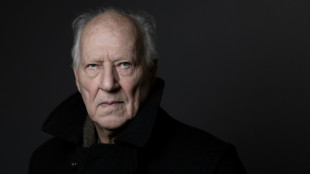 Globetrotter Herzog to get special Venice award
Globetrotter Herzog to get special Venice award
-
'Old things work': Argentines giving new life to e-waste
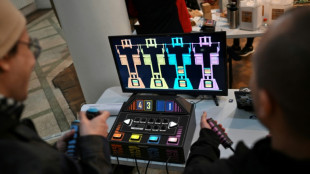
-
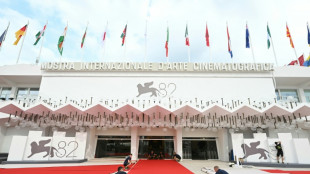 Showtime for Venice Film Festival, with monsters, aliens, Clooney and Roberts
Showtime for Venice Film Festival, with monsters, aliens, Clooney and Roberts
-
Thai woman jailed for 43 years for lese-majeste freed
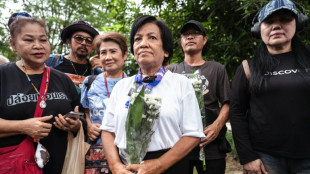
-
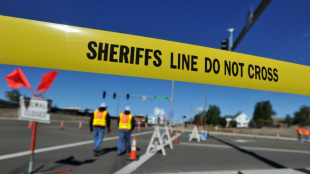 What is swatting? Shooting hoaxes target campuses across US
What is swatting? Shooting hoaxes target campuses across US
-
Row over Bosnia's Jewish treasure raising funds for Gaza
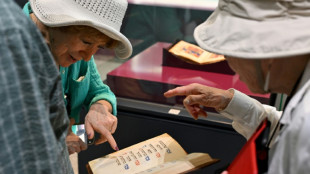
-
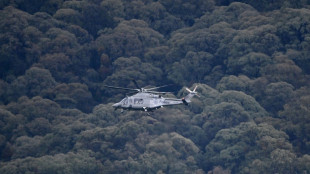 Police search Australian bush for gunman after two officers killed
Police search Australian bush for gunman after two officers killed
-
NZ rugby player who suffered multiple concussions dies aged 39
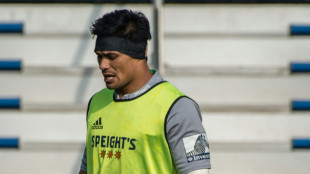
-
 Former Australian Rules player comes out as bisexual in first
Former Australian Rules player comes out as bisexual in first
-
French, German, Polish leaders to visit Moldova in show of force in face of Russia
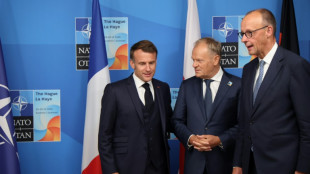
-
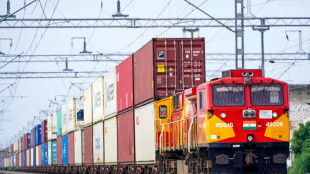 US tariffs on Indian goods double to 50% over Russian oil purchases
US tariffs on Indian goods double to 50% over Russian oil purchases
-
Feudal warlord statue beheaded in Japan
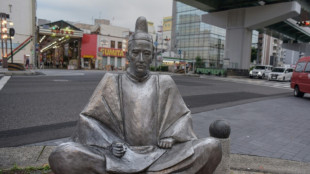
-
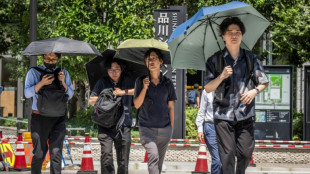 Tokyo logs record 10 days of 35C or more
Tokyo logs record 10 days of 35C or more
-
Sinner, Swiatek romp through at US Open as Gauff struggles
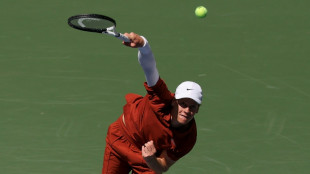
-
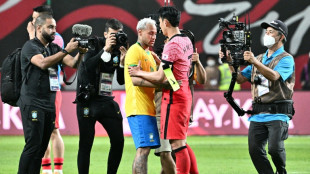 Brazil to face South Korea, Japan in World Cup build-up
Brazil to face South Korea, Japan in World Cup build-up
-
Asian markets diverge with eyes on Nvidia earnings

-
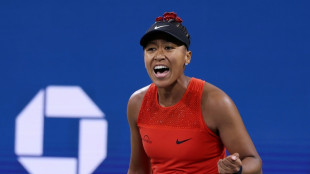 Osaka out to recapture sparkle at US Open
Osaka out to recapture sparkle at US Open
-
China's rulers push party role before WWII anniversary
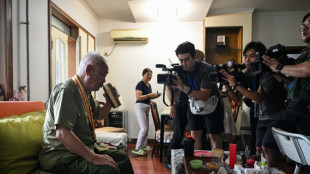
-
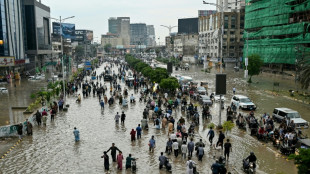 Pakistan's monsoon misery: nature's fury, man's mistake
Pakistan's monsoon misery: nature's fury, man's mistake
-
SpaceX answers critics with successful Starship test flight
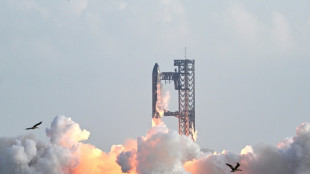
-
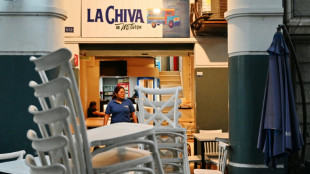 Nightlife falls silent as Ecuador's narco gangs take charge
Nightlife falls silent as Ecuador's narco gangs take charge
-
Unnamed skeletons? US museum at center of ethical debate
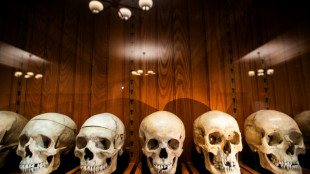
-
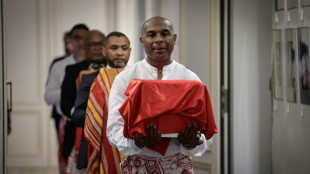 France returns skull of beheaded king to Madagascar
France returns skull of beheaded king to Madagascar
-
SpaceX's Starship megarocket launches on latest test flight
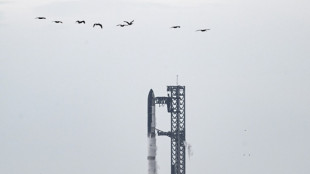
-
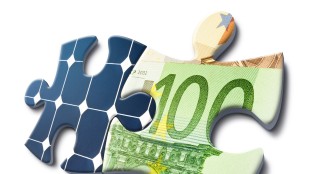 Formerra Appointed Distributor for Italy's Epaflex TPU Lines in the UK & Ireland
Formerra Appointed Distributor for Italy's Epaflex TPU Lines in the UK & Ireland
-
US restaurant chain Cracker Barrel cracks, revives old logo

-
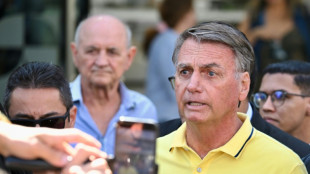 Brazil's Bolsonaro placed under 24-hour watch ahead of coup trial verdict
Brazil's Bolsonaro placed under 24-hour watch ahead of coup trial verdict
-
Taylor-Travis love story: 5 things to know
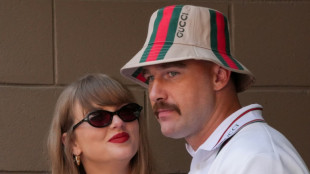
-
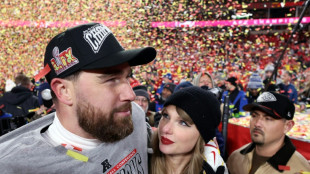 Sports world congratulates Swift and Kelce on engagement
Sports world congratulates Swift and Kelce on engagement
-
Wolves inflict more woe on West Ham, Leeds crash out League Cup

-
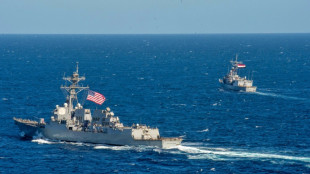 Venezuela deploys warships, drones as US destroyers draw near
Venezuela deploys warships, drones as US destroyers draw near
-
French political turmoil sends European stocks down, Wall Street edges up
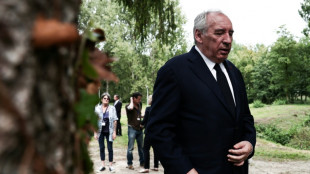

Far from conflict in Ukraine, Muscovites try to go on as normal
Far from the conflict in Ukraine, spring has arrived in Moscow with -- on the surface at least -- life appearing to go on much as normal.
With another of Russia's famously harsh winters coming to an end, Muscovites are crowding into restaurants and theatres, wandering through art galleries and walking the streets in the sun.
But underlying the apparent normalcy is a deep sense of anxiety, with many here worried about a future under Western sanctions and international isolation.
In a yellow-and-pink cafe in the city centre, three young women wearing party hats celebrate one of their birthdays, laughing and taking selfies.
"You have to keep living. Birthdays come and you celebrate," says one of the women, Olesya.
"You can't read the news all the time."
Russia has been pummelled with sanctions since it launched a military campaign in Ukraine on February 24, with a wide range of imports cut off and a slew of Western companies withdrawing from the country.
Inflation is on the rise and thousands have been thrown of out of work, but authorities insist Russia is weathering the crisis, with President Vladimir Putin saying this month that the Western "economic blitzkrieg" against Russia had failed.
- 'Concentrate on the positive' -
The full impact of sanctions has yet to be felt, and Moscow is hardly representative of the whole of Russia, but in the centre of the capital there are few signs of a country in turmoil.
Some Western and luxury goods are becoming harder to find, but there are no widespread shortages and many Muscovites are going about their lives much as before the conflict.
Attending a contemporary art fair near the Red Square, 40-year-old Alexander says he is trying to "concentrate on the positive" despite losing his job in international commerce.
"You have to be informed, even if that's impossible watching (state) television. You have to help your family and your country. But you also have to travel and look at beautiful paintings," he says.
Like many others AFP spoke to, Alexander was not willing to give his last name because of uncertainties over what can be safely said in the current climate.
Few were also willing to discuss the conflict in Ukraine itself, after Russia introduced laws making it illegal to "discredit" the actions of the country's armed forces or its actions abroad.
Just a few steps from the Kremlin, the GES-2 contemporary art museum that opened at the end of 2021 was meant to be a major centre of Russian and European art.
After cancelling its exhibits following the start of military action in Ukraine, it is now inviting people to come "relax" at the museum by listening to sonic installations.
- 'Normal was before' -
Among those who have gone is Andrei, a 26-year-old commercial pilot, who says that because of sanctions on the aviation industry he barely flies at all anymore.
"I have no more career prospects," he says, adding that he needed time off from "reading too much news".
He says he was shocked by the direction Russia has taken, especially the crackdown on the opposition that took place in recent years.
"I was in the army when Crimea was annexed" from Ukraine in 2014, he says.
"I was happy, I was a patriot, I thought 'We are in an amazing country, we will have an amazing future'. And then I saw the repression and thought 'How is this possible in the 21st century?'"
Andrei sees no way back to normality for Russia now.
"Normal was before February 24," he says.
In front of the museum, 25-year-old computer scientist Eleonora Halmetova is back in Moscow from London visiting her parents for the first time in two years.
She says she can feel the difference in life in the city.
"People are a bit more cautious about what they say about the government, about politics," she says.
"Two years ago people were speaking freely, now a friend who is a teacher said 'Let's wait until we go outside to talk.'"
Halmetova says many people she knows have decided not to stay.
"Friends who used to protest two years ago now don't see any point, everything is illegal. The people I know left. Mainly for moral reasons. But also to have a better life."
R.Adler--BTB
